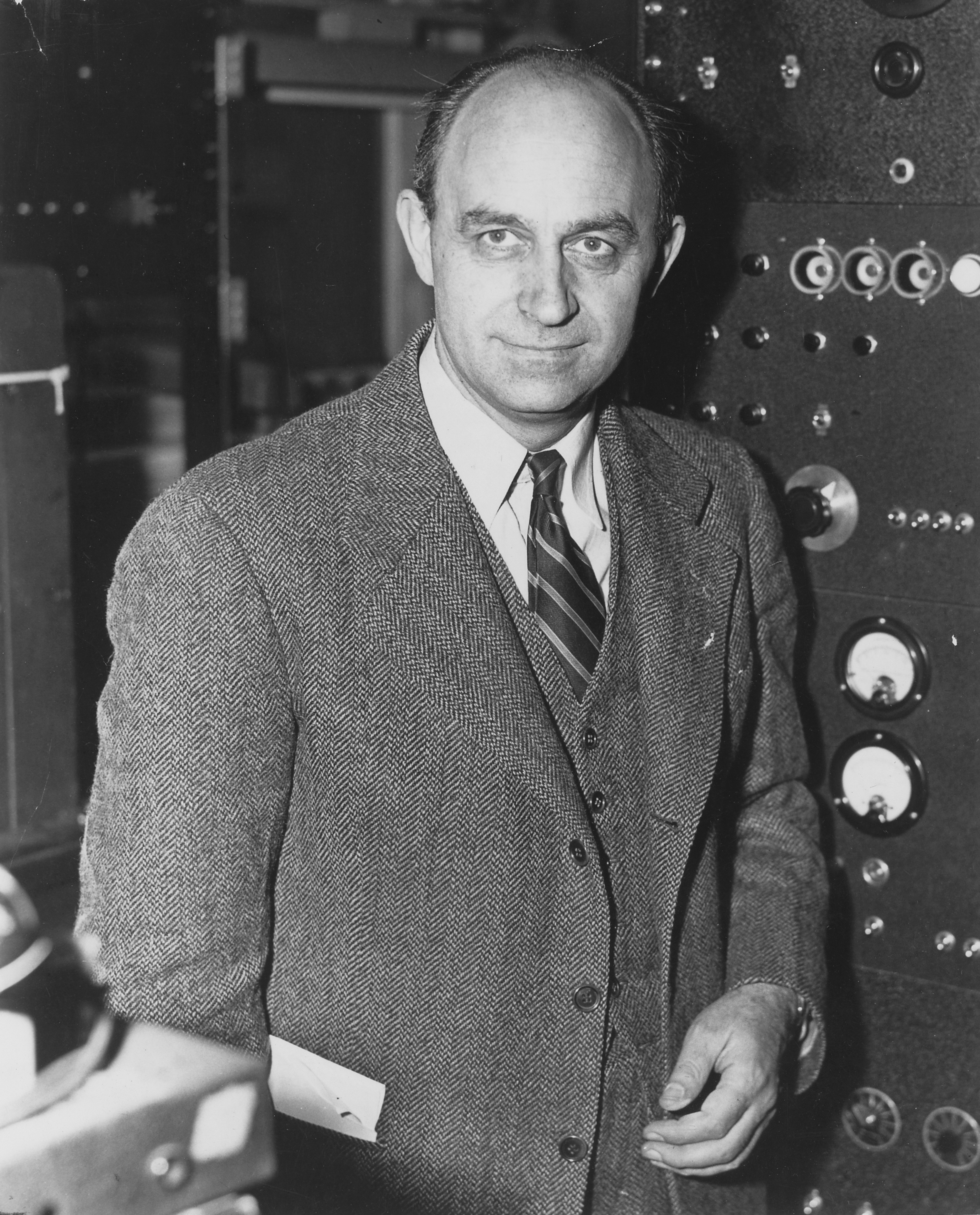em 1950, ao contestar a idéia que poderiam existir inúmeras formas de vida alienígenas espalhadas pela galáxia.
citado em "Where are They? Maybe we are alone in the galaxy after all" by Ian Crawford in Scientific American (Julho de 2000), p. 38-43 (PDF document) http://www.cc.nctu.edu.tw/~tseng327/nctu-origin/article/sc200007a.pdf; veja também "Our Galaxy Should Be Teeming With Civilizations, But Where Are They?" by Seth Shostak at Space.com (25 de outubro de 2001) http://web.archive.org/web/20011107185016/http://www.space.com/searchforlife/shostak_paradox_011024.html
Enrico Fermi frases e citações
Enrico Fermi: Frases em inglês
As quoted in Nuclear Principles in Engineering (2005) by Tatjana Jevremovic, p. 397
“I cannot think of a single one, not even intelligence.”
When asked what characteristics Nobel prize winning physicists had in common. As quoted in Physics Today (October 1994), p. 70.
On the Hydrogen bomb in a minority addendum http://honors.umd.edu/HONR269J/archive/GACReport491030.html (co-authored with I. I. Rabi) to an official General Advisory Committee report for the Atomic Energy Commission (30 October 1949)
Contexto: Such a weapon goes far beyond any military objective and enters the range of very great natural catastrophes. By its very nature it cannot be confined to a military objective but becomes a weapon which in practical effect is almost one of genocide. It is clear that the use of such a weapon cannot be justified on any ethical ground which gives a human being a certain individuality and dignity even if he happens to be a resident of an enemy country... The fact that no limits exist to the destructiveness of this weapon makes its very existence and the knowledge of its construction a danger to humanity as a whole. It is necessarily an evil thing considered in any light.
On the Hydrogen bomb in a minority addendum http://honors.umd.edu/HONR269J/archive/GACReport491030.html (co-authored with I. I. Rabi) to an official General Advisory Committee report for the Atomic Energy Commission (30 October 1949)
Contexto: Such a weapon goes far beyond any military objective and enters the range of very great natural catastrophes. By its very nature it cannot be confined to a military objective but becomes a weapon which in practical effect is almost one of genocide. It is clear that the use of such a weapon cannot be justified on any ethical ground which gives a human being a certain individuality and dignity even if he happens to be a resident of an enemy country... The fact that no limits exist to the destructiveness of this weapon makes its very existence and the knowledge of its construction a danger to humanity as a whole. It is necessarily an evil thing considered in any light.
“If I could remember the names of all these particles, I'd be a botanist.”
As quoted in Hyperspace (1995) by Michio Kaku
Comment to Eugene Wigner, ten days before his death from cancer, as quoted in The collected works of Eugene Paul Wigner (1992), p. 108
Nobel lecture (12 December 1938)
On the Hydrogen bomb in a minority annex http://web.archive.org/web/20080725010150/honors.umd.edu/HONR269J/archive/GACReport491030.html (co-authored with I. I. Rabi) to an official General Advisory Committee report for the Atomic Energy Commission (30 October 1949)
